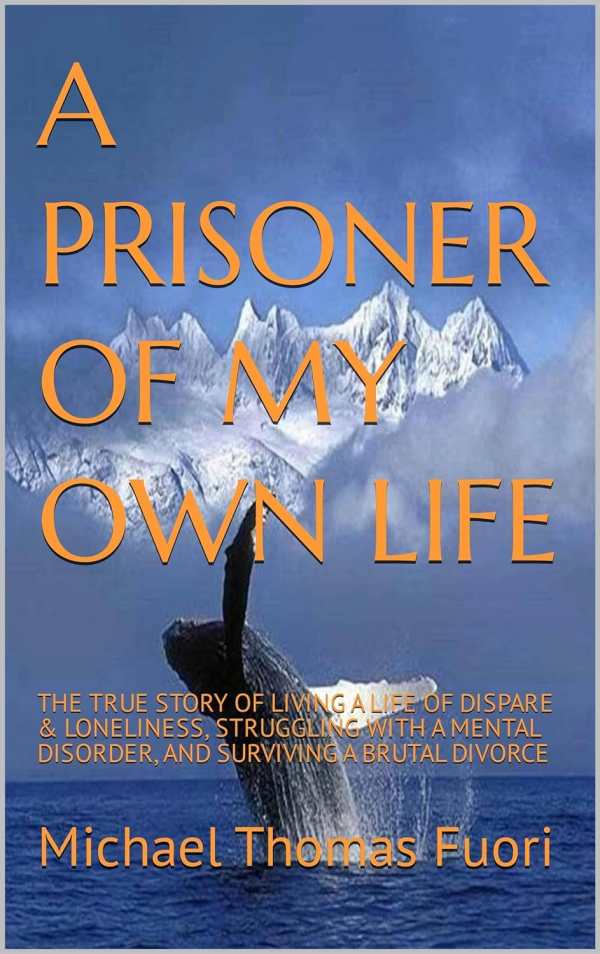
A Prisoner of My Own Life
The True Story of Living a Life of Dispare and Loneliness, Struggling with a Mental Disorder, and Surviving a Brutal Divorce
A Prisoner of My Own Life is a bare, confessional memoir that puts the private details of a heated divorce on full display.
Michael Thomas Fuori’s tumultuous memoir A Prisoner of My Own Life is about the struggles of being a father, weathering a divorce, and treating mental illness.
Fuori had a successful career in computer technology. With his wife, he bought a house on Long Island and began a family. But that family faced a slow demise because of decades of financial strain, unspoken grievances, assumptions about spending, and broken promises about becoming a dual-income household. In middle age, he went through a bitter divorce that alienated him from his children and decimated his financial cushion. When he was sixty-one, he moved back in with his parents in Florida for a restart.
This is a bare, confessional memoir that puts private details on full display, including regarding poor financial decisions (like lending a stranger $86,000 in the midst of struggles with his own expenses) and the experience of losing contact with his children. In discussing legal disputes and his partner’s deceit, its tone is furious; in addressing time spent working rather than rearing his children, it is tinged with regret. But it is also a jumbled narrative, jumping between its coverage of marital strife, mental illness, parent-child relationships, and the responsibilities of fatherhood without clarity and leaping between personal conclusions. Even the events that led to Fuori’s divorce are somewhat obscured.
Further, the book deviates from its coverage of Fuori’s personal struggles to deliver general emotional and legal advice to others going through divorces themselves. It includes commentary on the effects of social isolation in men and draws a distinction between mediation and trial divorces, impeding its flow. And it is too vague on personal topics, as with unsupported references to an underlying bipolar diagnosis that contributed to the end of Fuori’s marriage. Further, Fuori’s ex-wife and children are developed in rough terms; they seem more like caricatures than fleshed-out personalities.
Some chapters are crowded with topics that are handled in erratic, long-winded terms; others home in on specific information but are rushed through. Page-long quotes from popular culture—often shared without context—appear in the middle of some chapters and muddy the text further. Grammatical and spelling errors, missing words, malapropisms, and misplaced words are common and distracting; these mistakes extend to the book’s subtitle.
Covering the experience of going through an acrimonious divorce, A Prisoner of My Own Life is a candid memoir.
Reviewed by
Willem Marx
Disclosure: This article is not an endorsement, but a review. The publisher of this book provided free copies of the book and paid a small fee to have their book reviewed by a professional reviewer. Foreword Reviews and Clarion Reviews make no guarantee that the publisher will receive a positive review. Foreword Magazine, Inc. is disclosing this in accordance with the Federal Trade Commission’s 16 CFR, Part 255.
